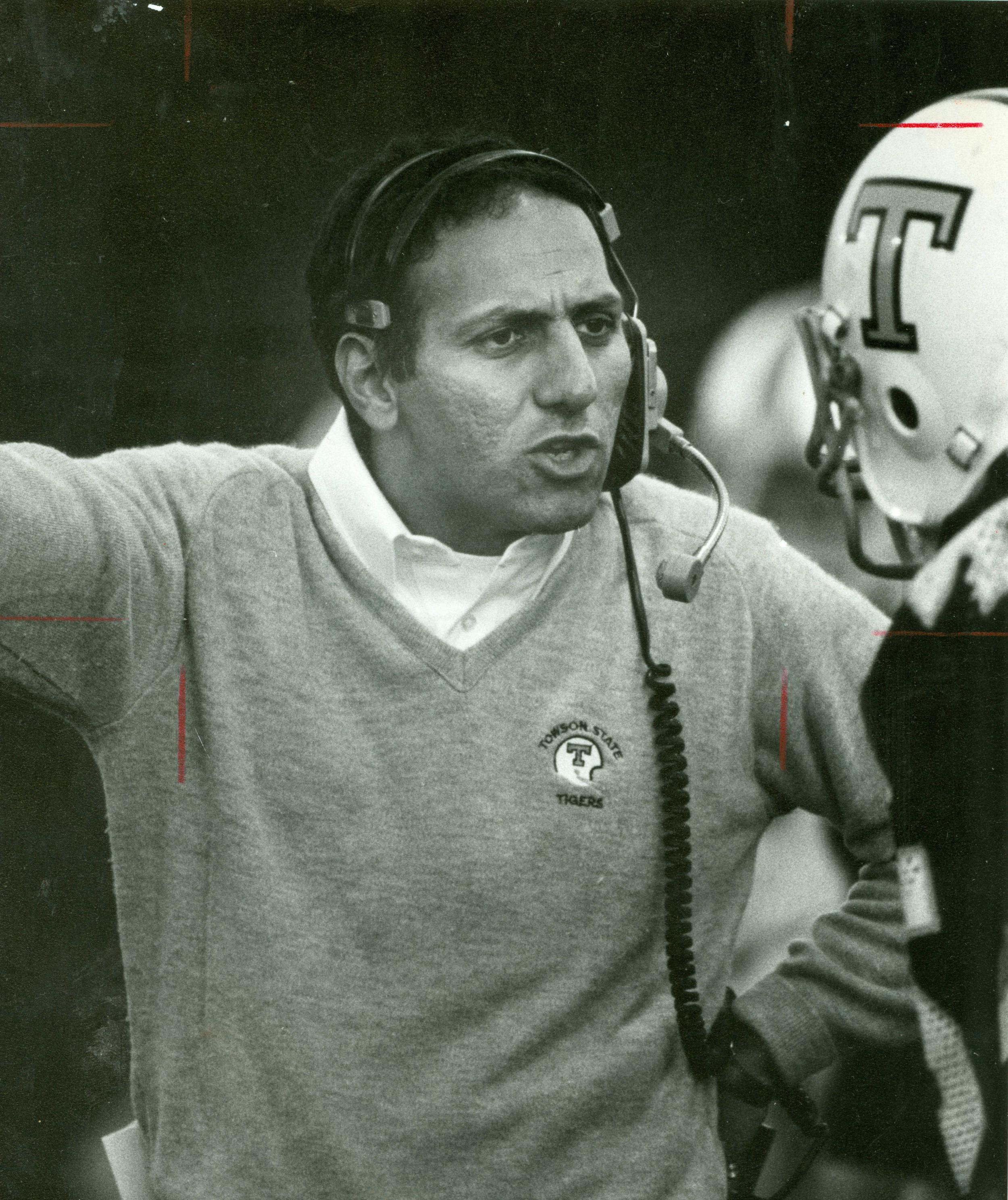
Coach is a special word in my vocabulary. It’s more than a title. It’s more than a job. It can stand for a leader, a teacher, a visionary, a positive influence, a sounding board, a guiding light. A strategist. A winner. And for the very rare person, “Coach,” represents all of those things.
Phil Albert was that rare person.
He was the head coach of Towson University’s football team for 3 decades. Leading Towson from Division III to Division I-AA. He led the program to a national championship game. Along the way he won 117 games. And none of that is any more than a mere shadow of the man.
His players called him “Coach A.” Some of us didn’t even know his name was Phil until years after we played for him. “Coach” was his first name, “A” his last.
Coach A could diagram X’s and O’s as well as any coach at any level, but he taught you more than just how to run the six route on the passing tree. He didn’t merely build football teams. He built men. And often times from the unlikeliest of materials.
He coached all-conference players and several all-Americans too. I wasn’t one of them. In the two years I played as a walk-on at Towson, I didn’t catch a single pass from my tight end position or record a single statistic. I essentially did nothing to help Coach A win a football game, but like so many others I am eternally grateful to him for what he did for me.
Coach A taught many of us the art of looking the impossible in the eye and not flinching. And not merely with words. I remember an off-the-field incident from my sophomore year that I was involved in. It was the 80’s so, yes, drinking was involved. I was at fault, and he had every right to kick me off the team. After all, it wasn’t going to hurt the team’s production.
Instead he not only sat me down and talked me through my mistakes but when I got called into a meeting with the Dean of the Students, he went to the meeting with me. Keep in mind, I wasn’t his starting quarterback. I was a backup, an insignificant, unproductive backup. In football lexicon I was a JAG. Just. A. Guy.
But Coach A saw more than football players. He saw future men, future fathers, future husbands, future professionals. He helped us see that too, especially those of us who often couldn’t see a horizon beyond next Thursday night’s party.
He taught us how to see more for ourselves, how to demand more of ourselves, and how to give more to others. Only on the rarest of occasions did he need words to do that.
Some leaders demand respect. That actually demand it, insist upon it. You will respect me! Not Coach A. Players volunteered their respect and loyalty to him. To this day it’s still one of the most powerful leadership lessons I have learned. Leadership isn’t a title. Power isn’t something you hold over people’s heads. It’s a calling, an unselfish use of talent for the genuine betterment of others—frequently without reward or repayment.
Even if you never had the opportunity to show up on a practice field on a hot August day in training camp and watch Coach A pull 80 guys from the stupor of their own self-pity to their highest level of effort, you have experienced his impact if you are a Baltimore football fan.
You see at the end of every practice, just before we did conditioning drills he would says six words, six words that have always stayed with me, six words that captured the essence of “You did what you came to do today.” He would say, “The Hay is in the Barn.”
That’s where I got the phrase.
Now it will mean more than ever to me.
Like so many of his former players, I didn’t get the chance to say goodbye to Coach A, the chance to say thank you. Cancer took him took quickly.
He knew more than most that cancer only takes your body. It doesn’t touch your influence, your legacy, your impact.
If ever there was a man who truly did what he came to do it was Phil Albert, Coach A.
Coach, thank you.
The Hay Is In The Barn.